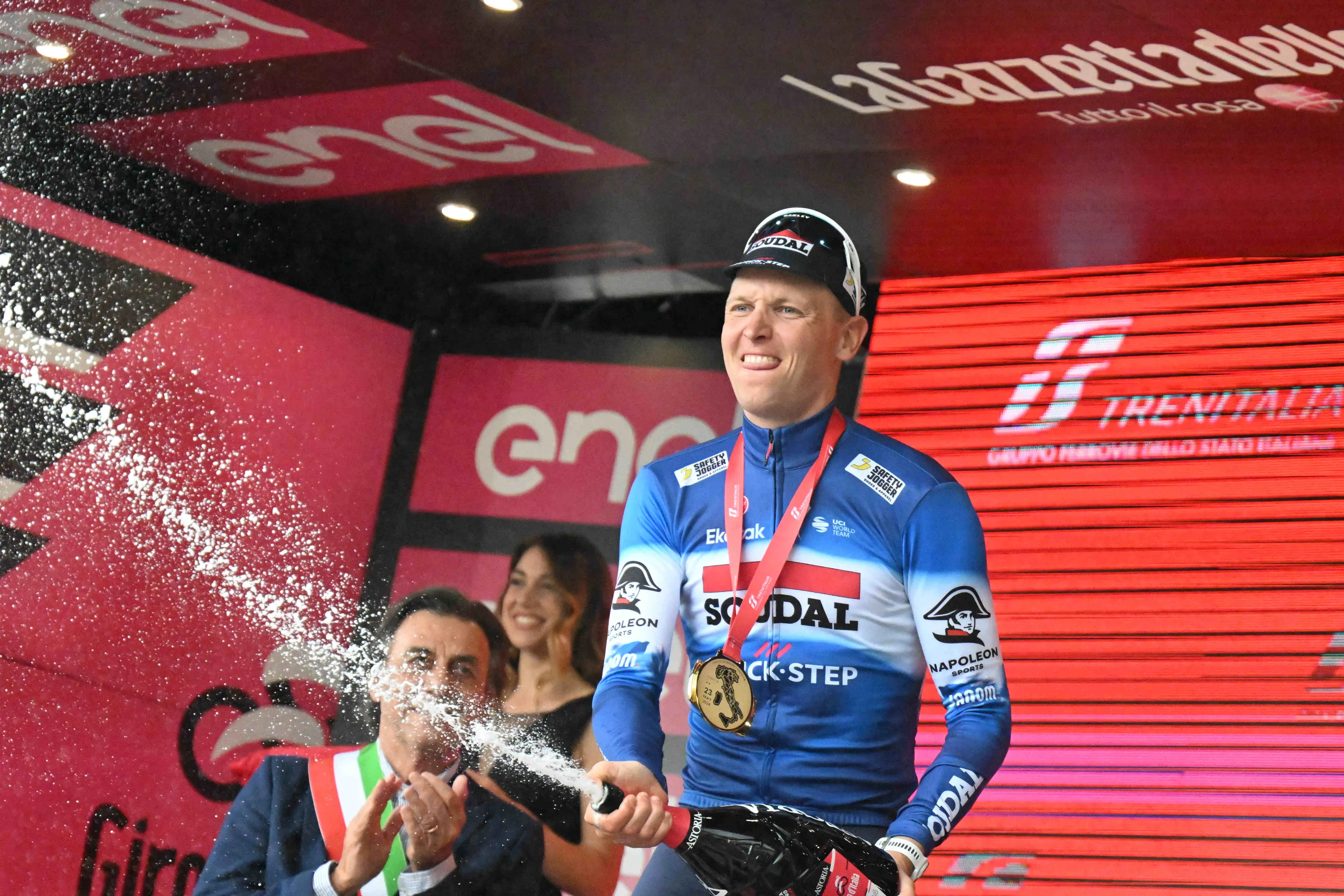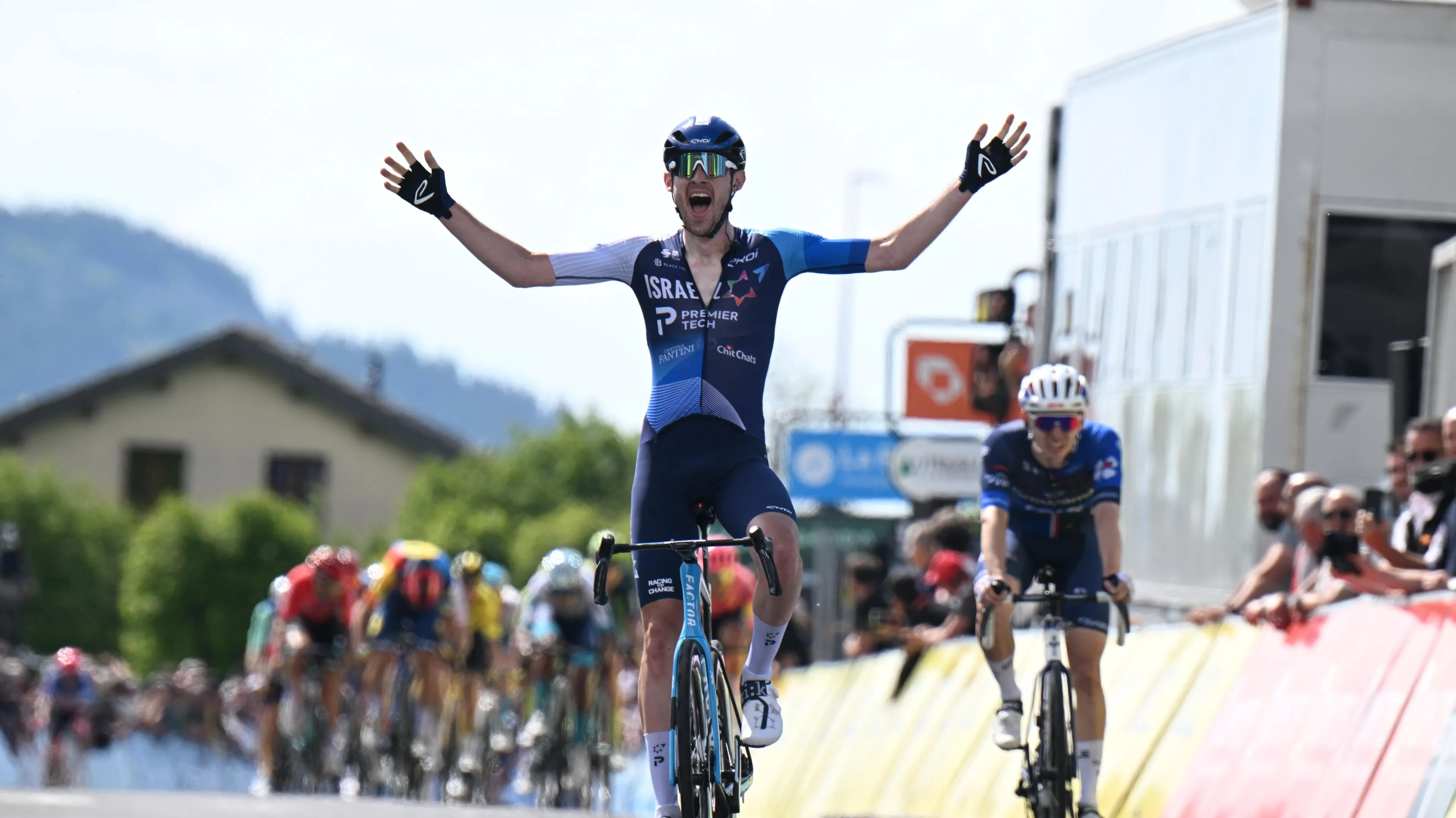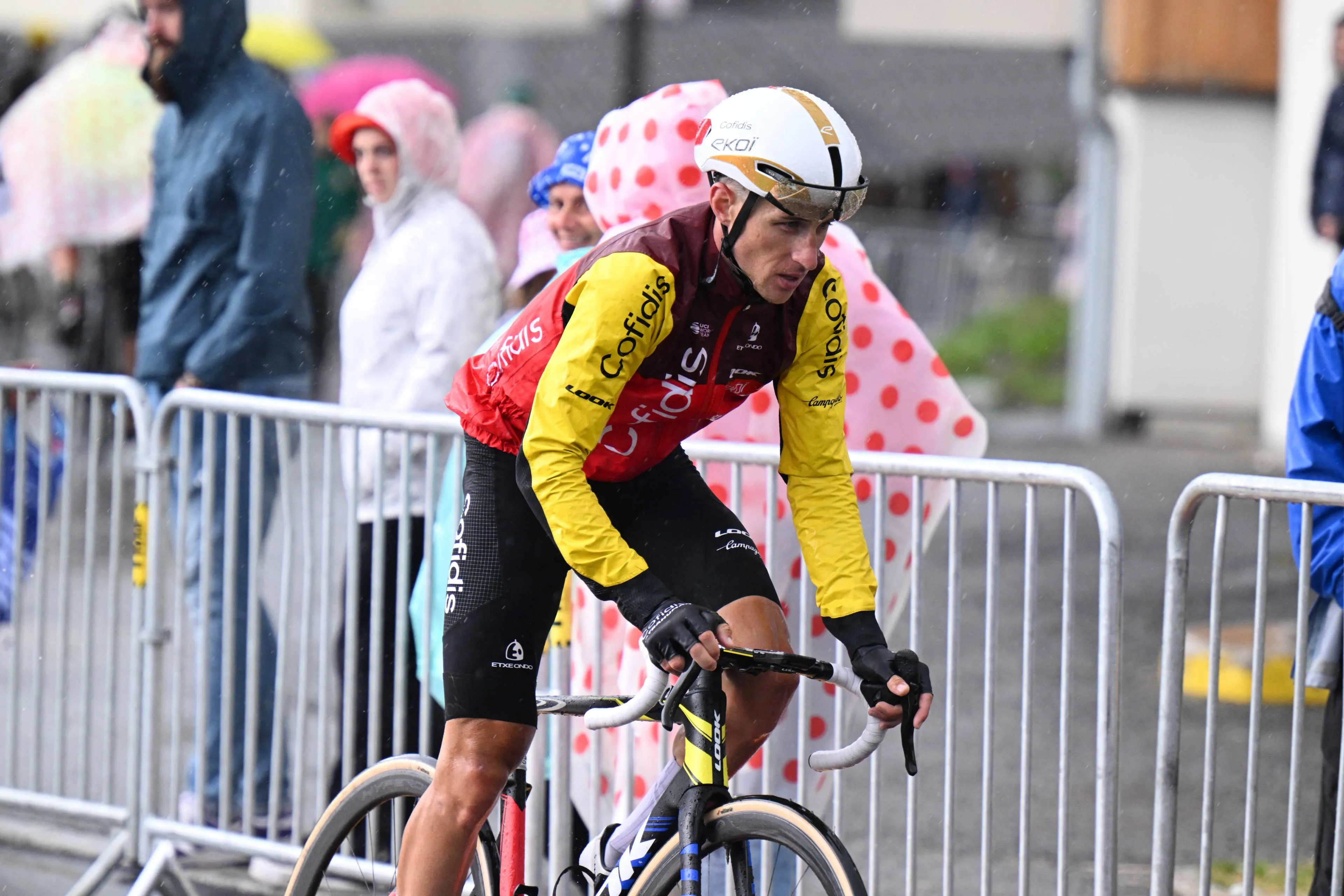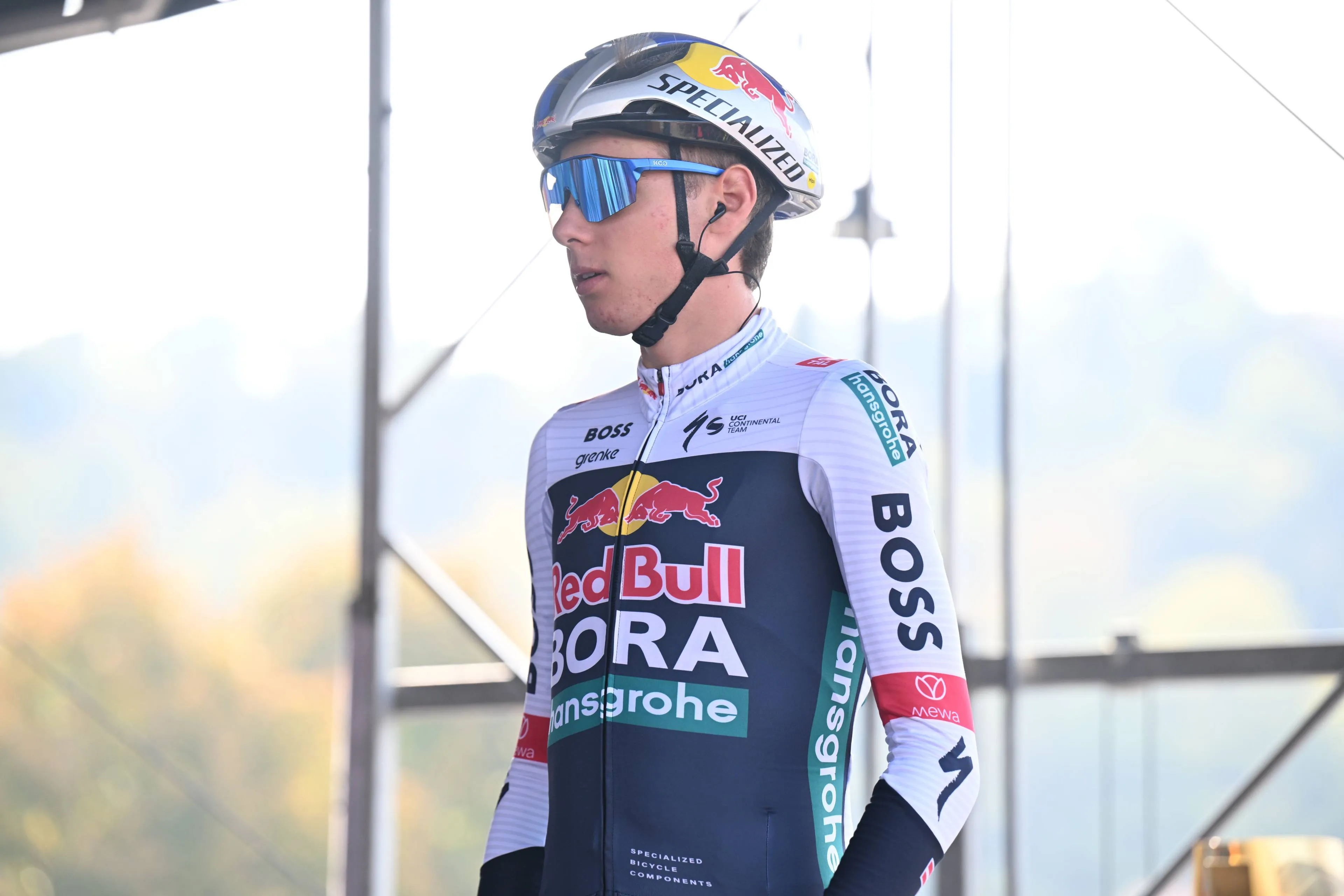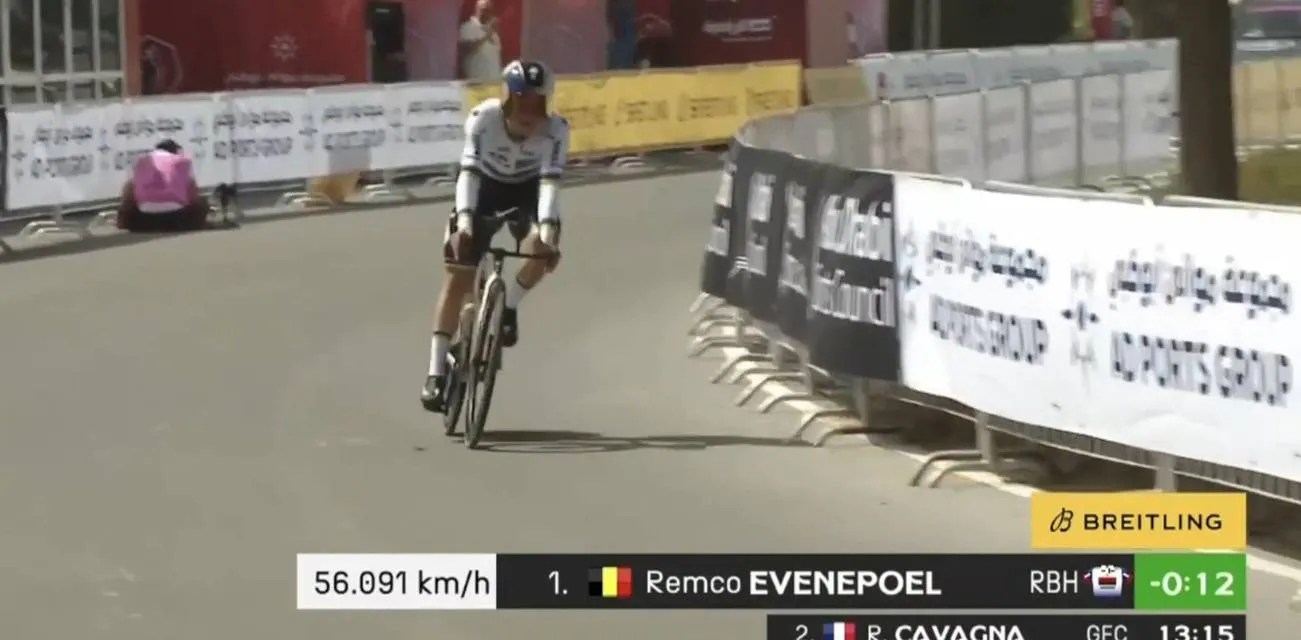"My friends were calling to ask me what was going on" - Jhonatan Narváez unhappy about Richard Carapaz's comments on Olympic Games selection
CyclingWednesday, 19 June 2024 at 10:30

This year's Olympic Games road race has always been a bit controversial after the Committee's decision to have equal number of men and women at the start. This means the valuable spots available for the male race became even more sought for, resulting in many hard decisions that often didn't go well with the riders involved. One such case happened in Ecuador, the country of the last Olympic champion Richard Carapaz.
The Southamerican nation has only a handful of riders scoring UCI points during the season and thus they (unsurprisingly) ended up securing only one slot to split between two leaders; Carapaz and Jhonatan Narváez. The Ecuardorian Cycling Federation didn't further complicate the matter and selected the INEOS Grenadiers rider Narváez who scored more points in the nomination period and also showed a better form. Understandably, Carapaz wasn't on the same boat and expressed his dissatisfaction online.
Read also
His compatriot Narváez tried to see things from bigger perspective: "I talked to him two months ago. I told him we should wait and see what happens. He and I wanted to go to the Olympics. Then he wrote me when I won the stage of the Giro. And the day my selection was announced, he wrote to me to congratulate me. In the end, it's sport, that's how you have to consider it," he declared to Primicias.
Everything is back to normal then, even if Narvaez admits to regretting the way in which Carapaz expressed his disagreement: "I understand that Richard had his interests and wanted to convey his dissatisfaction with the regulations, but it seems to me that he didn't do it in the best way, because in the end, I got involved in things that affected me. My friends called me to ask me what was going on. Something I wasn't looking for. Maybe if Richard had expressed himself differently, it wouldn't have happened like this. It didn't end badly, but there was a controversy."
Read also
The weight of decision then fell on the shoulders of Ecuardorian Federation: "In the world of cycling, the only thing you have to do is pedal and listen to your team and the authorities. In this case, like it or not, it's the Authoritative Federation."
Concerning the Olympic Games race, which promises to be very difficult, the recent stage winner and wearer of the pink jersey at the Giro displays his ambition and his serenity: "It will be the same difficulty for everyone. I'm going to train a lot for these Olympics. I'm going to do my best in preparation, and if the race decides to leave me behind or put me in front, that's what will happen that day."
Read also
claps 1visitors 1
Just in
Popular news
Latest comments
- Completly agree, Jan was in front of van gils, following Pidcock wheel, it was Van gils who tried to force his way through Jan and the barriers. Are they blaming Jan because he belongs to the richest team that win a lot?
 maria2024202418-02-2026
maria2024202418-02-2026 - Clickbait title, not reality-based. Yawn.itsent18-02-2026
- lame, but probably correctantipodeanpedalfan18-02-2026
- Van Gils rode like wanted to get crashed or way too over confident that he was going to overtake Jan before getting pinched. It was obvious were Jan was going/had to go and MVG had the whole road to give an inch so he would have a chance to overtake on the rightjad2918-02-2026
- Double book this showing with the Melania documentary and you might get 100 people to see it...total !frieders318-02-2026
- Simple solution...stay off the barriers since you might get closed out ! Christen's sprint was legal as he was trying to get into the slipstream of Pidcock.frieders318-02-2026
- I believe Remco now understands that he will have issues reaching the top step as long as Tadej is in the Tour, whiles he's a year junior to Tadej he has had his upper body rebuilt twice now from crashes over the last few years. I think he has a chance to win the Tour in a few more seasons, you can only prepare yourself as best you can and try. He said he needs to race some more one week stage races, he should, he can probably win them all. I also believe Remco should aim for another Vuelta if he comes out of the Tour in good form and maybe he should think about the Giro again for next season. This is potentially Tadej's fifth Tour win coming up this year, no one is going to derail that unless he falls off the bike or gets really sick.awp17-02-2026
- Not only will the great narcissist get his voice, but he'll benefit financially from this as well. Who says that cheating and lying your way to victory doesn't pay?
 santiagobenites17-02-2026
santiagobenites17-02-2026 - It'll make a good double feature with the Michael Jackson soft focus biopic.LumbarDeniro17-02-2026
- Yeah, whilst MVDP would never break a bone on the MTB... 😂Sexass17-02-2026
Loading
Write a comment

